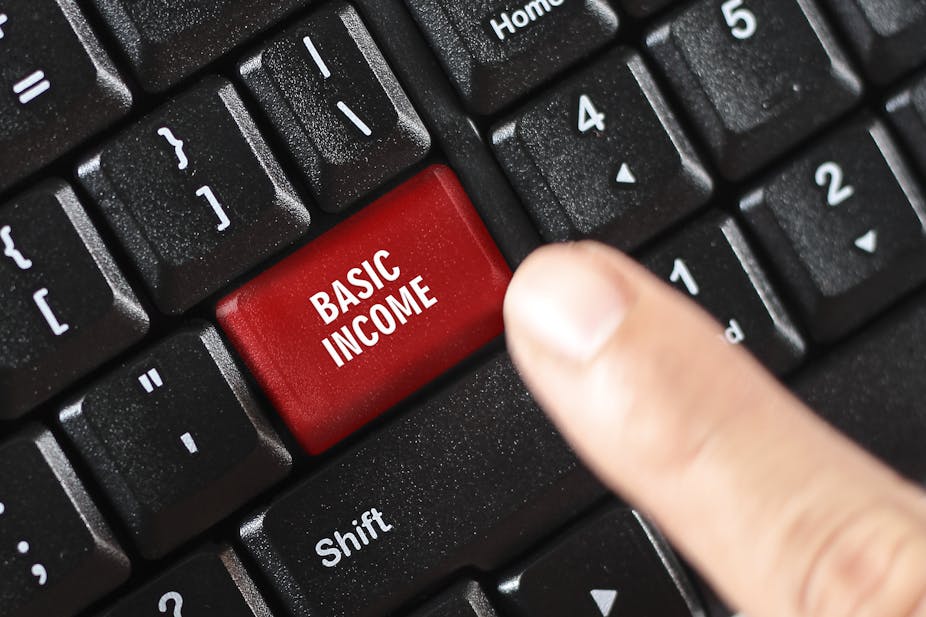An idea gaining traction in various part of the world is that everyone in society should receive an amount of money from the state to cover their basic cost of living. People would no longer be stigmatised on benefits, argue supporters.
Dependent women would become financially independent. People would be freed to care for the elderly, crime would fall and the general health of the population would improve. Particularly in an era of fears about future mass unemployment caused by automation, there is a growing feeling that this citizens’ basic income is an idea that’s time has come.
Experiments are either getting underway or have taken place in parts of Canada, Finland, India and the Netherlands. Now Scotland could become the first part of the UK to trial such a system. Fife and Glasgow councils have both held discussions recently, while a new body, Citizen’s Basic Income Network Scotland, has launched.
Scotland is at a useful crossroads for such an experiment because it will have a new social security system after a number of benefits are devolved from London over the next couple of years. The citizens’ basic income has long been a policy of the Scottish Greens, but political support has been widening this year after the SNP voted in favour of a motion supporting it at their spring conference.
Together with UK-level encouragement via discussion events from society organisation RSA and a policy paper from left-wing group Compass, this galvanised supporters to lobby Scottish councils to trial it locally as one way of improving poverty and inequality.
Fife is now launching a feasibility study early in 2017 which looks likely to follow other models and concentrate on a specific poorer area within the population of 365,000. Glasgow’s council, population nearly 600,000, has expressed its interest in the basic income’s potential for improving poverty levels in the city and Labour councillor Matt Kerr is to begin researching and designing a trial.
Poverty in the UK, millions

On the question of what level of income would be reasonable, I have suggested between £700 and £1,000 per month. Annie Miller of Citizen’s Basic Income Network Scotland has suggested it should be half the average income level, meaning £1,154/month, funded by a flat rate of income tax of 40%. (The basic income itself would be tax-exempt.)
Pros and cons
The idea of a basic income has attracted support over the years from across the political spectrum, including on the Right from the likes of Charles Murray and Friedrich Hayek. It is by no means universally accepted, however – Switzerland held a referendum on introducing it nationwide earlier this year and it was decisively rejected.
Opponents worry about costs, for example, with one report suggesting that replacing the American welfare system with a basic income would add about ten percentage points to the tax take as a proportion of GDP if you gave everyone a mere US$10,000 a year (£8,100, or £675 a month). Opponents also worry idleness would become more widespread, that you would further entrench state dependency and that any rich countries trying it would have to close their borders to prevent a huge influx of inward migration.
The costings argument is far from clear cut, however. It ignores the substantial economic stimulus from the increase in government spending, as well as the savings from better public health, lower crime and so forth. The huge cost of implementing the means-tested benefits system has also helped make the simplicity of the basic income seem much more attractive. As for the immigration issue, this could be tackled by graduating the basic income for new arrivals and everyone else over 18 to start with a lower payment that rose towards a maximum over a number of years.
Opponents also ignore the very real positive examples of poverty eradication and citizen empowerment from trials such as one in Canada in the 1970s. That experiment in Manitoba province also showed that health and well-being indicators improved for recipients, while hospitalisations and mental health diagnoses fell.
Professor Guy Standing of the School of Oriental and African Studies, University of London, one of the leading proponents of a basic income, used the launch of Citizen’s Basic Income Network Scotland in November to outline how the results from an experiment in Pradesh, India had been stronger than anticipated.
The experiment saw people in a number of villages receiving a basic income for 18 months, including children (paid to a parent or guardian). The only social group doing less paid work than before was the children, while work rates increased for all other segments of the population – hardly widespread idleness.
Meanwhile, women and girls had become financially independent and were enjoying better health, which will be particularly interesting to feminist economists. (We at GCU are currently looking at how a basic income could improve the economic prospects of women from ethnic minorities and disabled women.)
So while it might be some time before we see countries adopting the basic income across the board, there does appear to be a strong case to be made for it. The next few years should produce considerably more data about how it works in practice – hopefully Fife and Glasgow included. When it comes to ideas moving from the fringes to the political mainstream, this is one that is making the journey.

